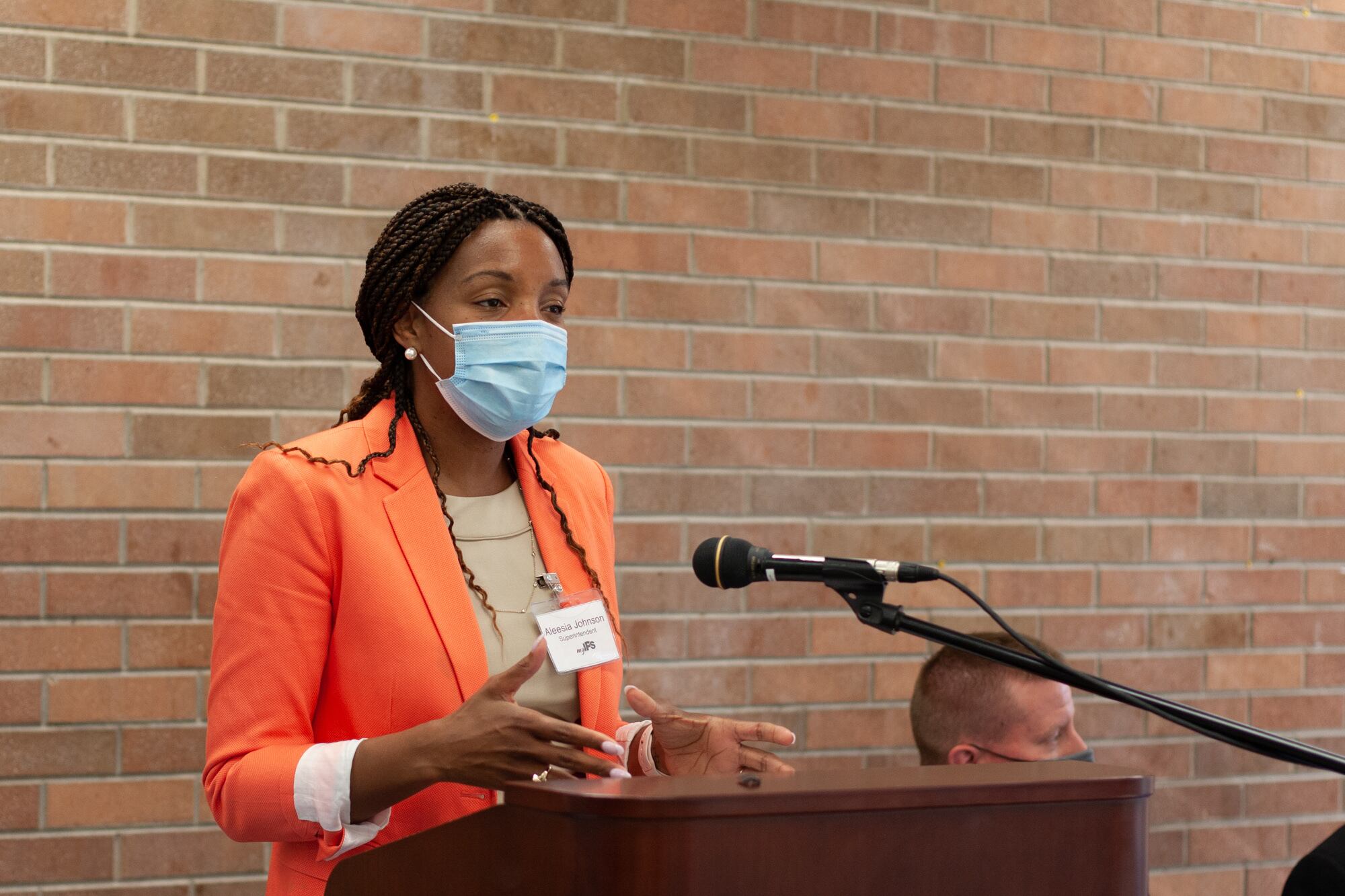Indianapolis Public Schools will spend $14 million in federal emergency funds on cash bonuses to reward staff who stay with the district, officials announced this week.
IPS has also earmarked another $1 million for two additional retention initiatives, including virtual mental health therapy for staff and their families, and a new pilot program to give teachers more flexibility in their workday schedules.
The purpose is to bolster hiring and retention as schools enter their third year of grappling with the pandemic.
“Having great instructional staff is a critical enabling condition for anything we want to do as a district,” said Sarah Robinson Chin, the district’s deputy chief of staff.
Around 3,200 full-time staff are eligible for the cash bonuses, which are based on attendance. For the remainder of the spring semester, they must miss no more than two days, according to the district.
Spring bonuses of $1,000 will be paid out in the fall, and fall bonuses of $1,500 will be paid out in the spring of 2023. The program will repeat in the spring and fall the following year, paid for using money from the federal Elementary and Secondary School Emergency Relief fund.
The pilot program to give teachers more flexibility with their schedules is rolling out in two yet-to-be-identified schools this fall, with details still to be determined.
Robinson Chin said the district will work with a vendor, as well as the schools’ staff, administrators, and parents, to determine exactly what that flexibility will look like.
One example could include organizing teachers’ schedules to give them longer blocks of planning time to use at home, she said. Or, other staff could be brought in to supervise students during academic intervention time, while teachers work on curriculum or make plans.
Students would still be expected to be in their physical classrooms in these scenarios, according to the district.
“Most knowledge economy jobs are flexible in location and hours,” she said. “Teaching is just not.”
Aleksandra Appleton covers Indiana education policy and writes about K-12 schools across the state. Contact her at aappleton@chalkbeat.org.






